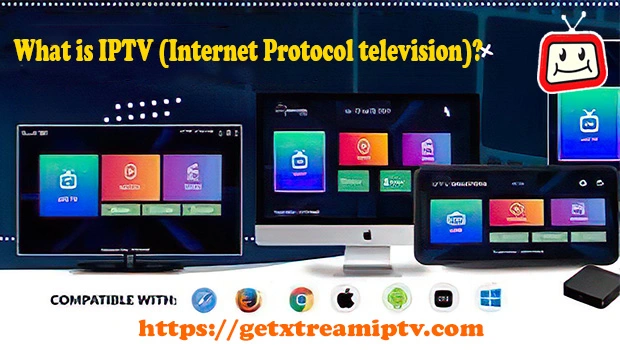Table of Contents
IPTV (Internet Protocol television)is a distinctive type of service that delivers television programming and video content using the Transmission Control Protocol/Internet Protocol (TCP/IP) suite. This contrasts with traditional broadcast TV, cable TV, or satellite signals.
What is IPTV (Internet Protocol television)?
IPTV is a service that typically gets distributed by a service provider, offering live TV programs or on-demand video content through IP networks. This system can also be utilized to provide video content over a private network within an enterprise, although such implementations are less common due to the complexity, network latency, and scaling issues.
Note: IPTV provides a diverse range of television programming and video content using the TCP/IP suite.
How Does IPTV Work?
IPTV content is often delivered over a managed or dedicated network, such as Digital Subscriber Line connectivity. In comparison to public internet, a private network provides network operators more control over the video traffic and, consequently, the ability to ensure quality of service, uptime, bandwidth, and reliability.
Traditional television delivery broadcasts all programming simultaneously in a Multicast format. The available program signals flow downstream, and viewers select programs by changing the TV channel. However, an IPTV service sends only one program at a time in a unicast format. Content remains on the service provider’s network, and only the program the end user selects is sent to their device.
When a viewer changes the channel, a new stream is transmitted from the provider’s server directly to the viewer. Like cable television, IPTV necessitates a set-top box or other customer premises devices, such as a Wi-Fi router or a fiber optic or broadband internet connection.
IPTV primarily uses IP multicasting with Internet Group Management Protocol for IPv4-based live television broadcasts and Real-Time Streaming Protocol for on-demand programs. Other common protocols include Real-Time Messaging Protocol and Hypertext Transfer Protocol.
Note: The operation of IPTV is quite different from traditional television delivery mechanisms.
IPTV Use Cases
Because IPTV uses a packet-based delivery system, it can be bundled with other IP-based services like voice over IP and high-speed internet. The use of IP also allows providers to support various services and applications, such as video on demand, interactive TV, livestreaming, in-program messaging, and time shifting. These services enable viewers to consume content in ways other than live broadcasts, such as digital recording, on-demand television shows, and the ability to rewind or restart a live program already in progress.
IPTV competes with another delivery model known as internet TV, which refers to television content distributed through a website via a broadband connection.
Note: IPTV’s use cases extend beyond typical television programming.
IPTV Providers
IPTV providers range from large network operators, like Verizon with its FiOS video services, and major companies such as Netflix, Google, Apple, Microsoft, and Sony, to smaller or niche companies specializing in certain types of content delivered over a broadband IP connection.
A few examples of major IPTV providers include:
- Roku
- Hulu
- YouTube
- Amazing TV
- FalconTV
- SelectTV
- Best Cast TV
- Comstar.tv
- Xtreme HD IPTV
These providers of IPTV offer a wide variety of content delivered over a broadband IP connection.
Note: IPTV providers come in all shapes and sizes, from major network operators to niche companies.
